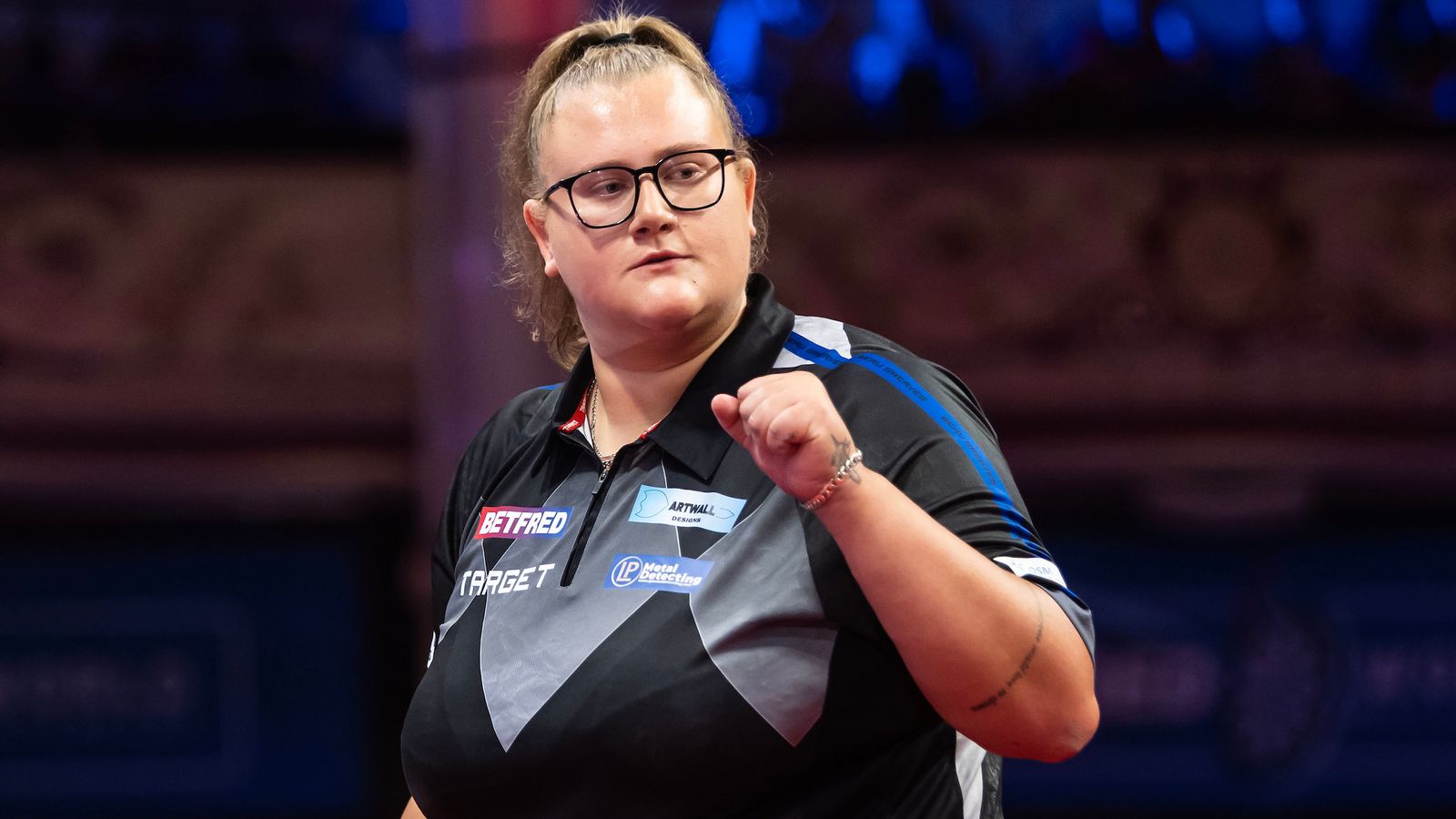
Aline Krauter found herself in a 7-for-1 playoff Wednesday morning for the final spot of U.S. Women’s Open qualifying in Naples, Florida. She birdied the first extra hole but wound up taking the first alternate position at Grey Oaks Country Club. What made the close call especially brutal, however, is that Krauter was one of nine players who received a one-stroke penalty for slow play on Tuesday. One group, in fact, was dinged for slow play in both the morning and afternoon rounds, for a total of 12 penalty strokes handed out on the day.
“I was crushed, obviously,” said Krauter, who would’ve taken the fourth qualifying spot outright had she not received the penalty stroke on her first 18 holes. Germany’s Krauter, a winner on the Ladies European Tour, shot rounds of 71-66 to finish at 7 under for the tournament, making birdies on the last two holes in regulation.
Julia Lopez Ramirez of Spain took medalist honors at Grey Oaks with a score of 11 under while Gurleen Kaur (9 under) and Amanda Doherty (8 under) finished second and third, respectively. Auston Kim won the playoff for the fourth spot.
Despite playoff loss, Aline Krauter notified of spot in U.S. Women’s Open
Nearly 12 hours after the sting of a playoff loss, however, things turned up for an emotional Krauter, who received a call from the USGA informing her that she’s now in the field of 156, May 29-June 1 at Erin Hills Golf Course in Wisconsin.
“I feel great about being in the U.S. Open,” said Krauter. “To be fair, I always felt like I should be in the U.S. Open, based on my golf score, so it feels right.”
But, after what happened Tuesday in regard to pace of play, Krauter still wants to fight for change.
The USGA qualifier operated under the Florida State Golf Association’s Pace of Play Policy. Krauter, 25, was grouped with LPGA player Xiaowen Yin and teenage amateur Natalie Angelo, who had her dad on the bag.
“It seemed like we were running behind,” said Krauter, “but it never seemed like we were out of position.”
How the events unfolded that led to penalty for slow play
The former Stanford player said she played ready golf the whole way, to the point she questioned whether or not she was being overly rude when she went ahead with her shot from 30 yards ahead. On the 18th hole, their ninth of the day, Krauter told the group they needed to get moving. When she got close to the green, her caddie went up to a volunteer official and asked if they were behind. She said no.
Once they’d finished the hole and given their scores, Krauter said the official said they were actually a couple minutes behind.
As they made the turn to the first hole, a rules official stopped them to say they’d missed their checkpoint on the 18th and that everyone in the group would receive a one-stroke penalty that they could appeal after the round. Krauter noted to the official that the group in front of them was still on the green. By the following par 3, they were waiting to hit their tee shot.
Darin Green, FSGA senior director of rules and competitions, said that Krauter’s group was 20 minutes over the maximum allotted time and 19 minutes behind the group ahead of them, which is 4 minutes in breach of the rule.
When they got into scoring after the first round, Krauter said she wanted to appeal the penalty. She stated her case to the official in scoring and then again to a second official.
“Again, same thing, I kind of gave him a rundown of how the round went and just the fact that I was never too slow and that I went first and played ready golf as much as I could,” said Krauter, “and I explained to him that my role on the golf course is to make birdies, to play fast and to have good etiquette and nothing else. It is not my job to speed anyone up.”
The rules official stuck by the ruling. Krauter said she then asked if anyone had ever successfully appealed a pace-of-play violation.
“The guy from scoring looked at me and said, ‘Well, yes, this is the appeal, but it’s over now,’ and starts laughing,” said Krauter.
“At this point I’m like, excuse me? This seems very careless, because I wasn’t slow and this is my career and this could potentially be life-changing. I’m here trying to qualify for the U.S. Women’s Open, the most prestigious event of the year and you’re treating it like it’s just any event. The guy basically forced me to add a stroke to my scorecard because he said if I want to continue playing, I’m on the tee in 20 minutes.”
Green said that he has since spoken with the two officials in the scoring area and was told that the matter was taken seriously.
“There’s definitely no humor in it at all,” said Green, who added, “We handle these appeal processes quite a bit, and it’s intense for the players, and it’s equally intense for us.”
The FSGA’s Championship Pace of Play Policy uses a two checkpoint system and the first bullet point listed says “Players will not receive warnings” followed by “Each group is responsible for monitoring their own pace.” Players must complete each checkpoint hole under the allotted time or within 15 minutes of the group head.
All players in a group in breach of the pace of play policy at any checkpoint are subject to penalty.
The FSGA policy continues with “A player concerned about slow player in his or her group should first remind that player of the pace of play policy and encourage them to play more efficiently. The concerned player may, before or after penalties are assessed, request an official to monitor the group.”
Krauter, who has qualified for two previous U.S. Women’s Opens in 2021 and 2023, said she did not see an official during her first nine (the back nine), but Green noted there were three in place.
“From our view, it was a group effort, so to speak,” said Green of the group’s pace. “Nothing stood out as they passed those areas.”
Green also noted that each scorecard comes with the finishing time for reach hole, so that players can follow along as they play. While Krauter said that’s helpful in some cases, it’s not if the entire course is backed up.
Krauter hopes to speak to USGA CEO Mike Whan about the situation. Going forward, she’d like to see all USGA qualifiers follow USGA pace-of-play policies rather than local association rules.
When asked about implementing a standard policy throughout all qualifiers, the USGA provided the following statement to Golfweek:
“Administering a pace-of-play policy effectively requires significant training. Since each AGA has its own policy – many of which are modeled after the USGA’s – it’s more practical for them to use their existing policies during our qualifiers. Expecting them to train their Rules Committees on a separate, standardized policy wouldn’t be realistic, and would likely lead to inconsistent or ineffective implementation. This is an area where we offer resources and guidance, but ultimately, we trust the AGAs to apply their policies as they see fit.”
Krauter said she can’t remember the last time she cried as much as she did over this incident, though it all worked out for her in the end.
“I don’t wish this upon anyone,” she said. “Again, I‘m all for fast play, but not this way.”
#players #slowplay #penalty #U.S #Womens #Open #qualifier






